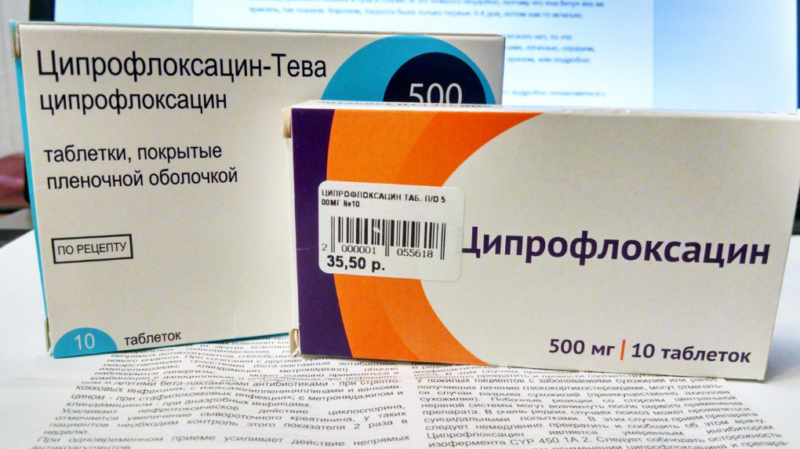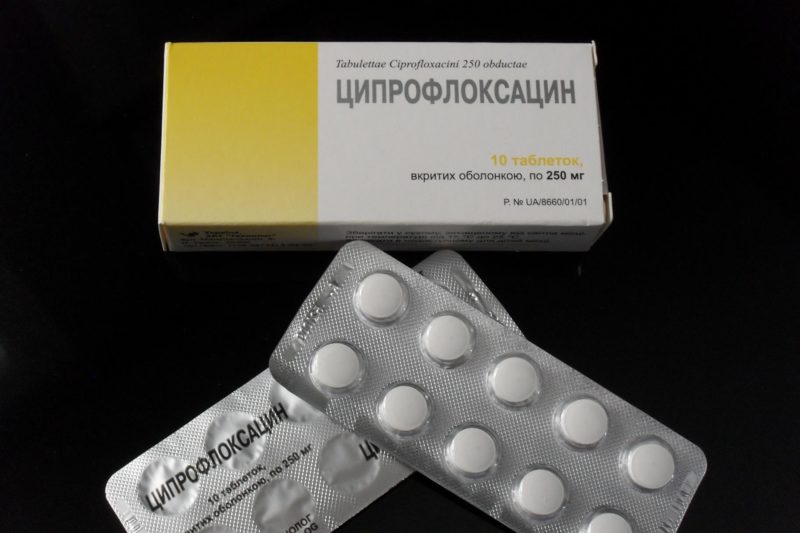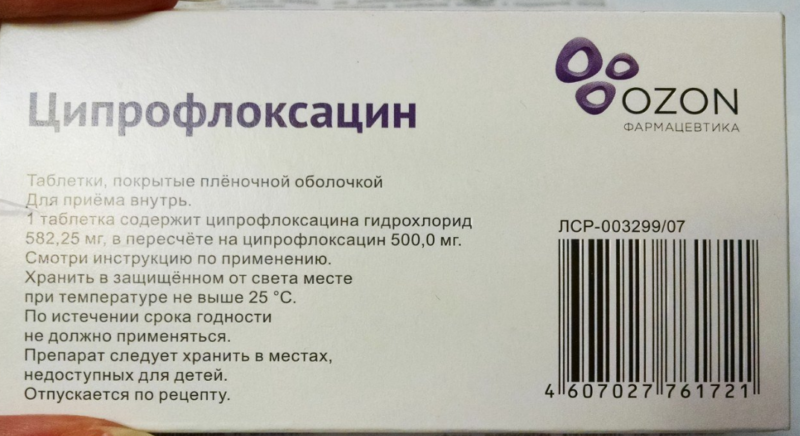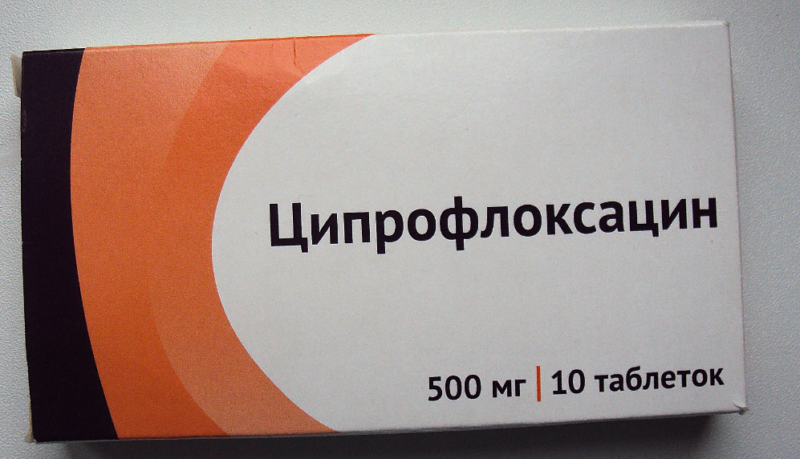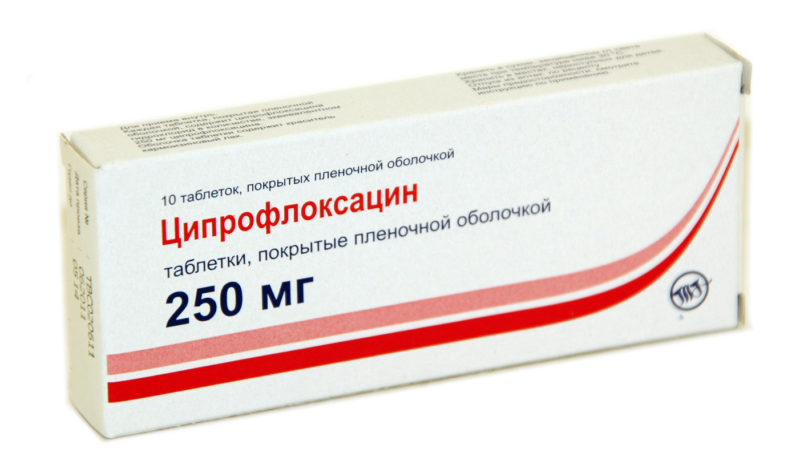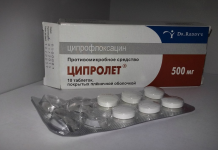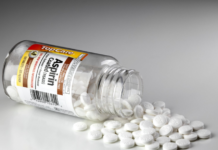Bacterial infections are considered one of the most common in the world. Modern pharmaceutical companies offer a wide range of medicines to treat such diseases. In our article you will find a description of Ciprofloxacin tablets, which help the body fight various pathogenic microorganisms.
Material Content:
- 1 Release forms and composition of the antibiotic
- 2 Pharmacological properties and indications for use
- 3 Instructions for use and dosage for adults and children
- 4 During pregnancy and lactation
- 5 Alcohol compatibility
- 6 Drug interaction
- 7 Contraindications, side effects and overdose
- 8 Ciprofloxacin Analogs
Release forms and composition of the antibiotic
One form of the drug is Ciprofloxacin 500 mg or 250 mg tablets. The active ingredient is ciprofloxacin.
The tool is also produced by various companies under similar names in the form of eye ointments and solutions for infusion.
Pharmacological properties and indications for use
The active substance belongs to fluoroquinolones. A strong bactericidal effect is characteristic of it, which provokes the death of sensitive pathogenic microorganisms. The consequence of taking the tablets is a violation in the structure of the DNA of bacteria and their destruction. The antibiotic Ciprofloxacin is active against dividing and non-dividing pathogenic cells.
He effectively fights against:
- staphylococci;
- streptococci;
- E. coli and Pseudomonas aeruginosa;
- protea;
- Klebsiella;
- Shigella
- gonococci.
It also effectively eliminates intracellular parasites, a list of which is presented:
- tubercle bacillus;
- legionella;
- mycoplasmas;
- ureaplasmas;
- chlamydia.
The effects of Ciprofloxacin on the causative agent of syphilis are still being investigated.
After oral administration of the drug, its active component is rapidly and equally distributed in the tissues, providing a therapeutic effect.
The official instruction for use states that it is advisable to prescribe a pharmaceutical agent for infections caused by a pathogen sensitive to its active substance.
Among them are infections:
- respiratory systems;
- ENT organs;
- kidney and urinary tract;
- reproductive system;
- Gastrointestinal tract and oral cavity, etc.
"Ciprofloxacin" can be recommended for critical weakening of the immune system to prevent infection.
Instructions for use and dosage for adults and children
The tablets are swallowed without crushing, drinking plenty of water. If you take the medicine on an empty stomach, then the rate of its absorption increases, and therefore the onset of the therapeutic effect is accelerated. How to take "Ciprofloxacin" for adults, only the attending physician decides. In this case, he must take into account the nature of the pathology, the degree of its development and the patient's history.
- With a mild course of the disease, it is recommended to take 250 mg of the active substance two to three times a day.
- If the pathology flows into a severe stage or is accompanied by complications, it is advisable to increase the dose to 500 mg twice a day.
- The medication is taken every 12 hours at the same time. Cycling is critical.
- For elderly patients and people with liver or kidney pathologies, it is necessary to reduce the daily dose by about a third.
- Treatment lasts about a week and a half.
- Dosage for children from five years of age with complications caused by Pseudomonas aeruginosa with pulmonary cystic fibrosis is 20 milligrams per kilogram twice a day. The maximum allowable dosage is 1,500 milligrams per day. The duration of therapy will be one and a half to two weeks.
- Patients on hemo- or peritoneal dialysis should take Ciprofloxacin immediately after the dialysis procedure.
Even if the symptoms of the disease are eliminated, it is important not to stop the therapy for another three days in order to avoid relapse and the development of superinfection. The dosage and duration of the course for each patient is determined only by the doctor.
During pregnancy and lactation
The medication should not be taken during pregnancy and breastfeeding. It can cross the placental barrier and pass into breast milk.
Studies have shown that an antibiotic can cause the development of arthropathy.
Alcohol compatibility
Joint reception "Ciprofloxacin" with alcohol is unacceptable. Neglect of this prohibition threatens indigestion and increased stress on the liver.
Due to these phenomena, the development of intoxication of the body is possible, which manifests itself:
- cramps
- severe headache;
- different types of allergic reactions.
After completion of Ciprofloxacin therapy, alcohol intake is permissible to resume no earlier than 5 days later. During this time, the metabolites of the drug will leave the liver.
Drug interaction
“Ciprofloxacin” does not combine well with other medicines, so only the attending physician can prescribe it as a component of complex therapy.
Contraindications, side effects and overdose
The medication is prohibited:
- pregnant and lactating women;
- children (with the exception of cases of severe course of the disease);
- patients with intolerance to ciprofloxacin or other representatives of the fluoroquinol group.
In most cases, “Ciprofloxacin” is well tolerated by patients, but in some its administration was accompanied by such negative reactions:
- from the gastrointestinal tract: nausea, vomiting, diarrhea, stomach or intestinal pain, pseudomembranous colitis, poor appetite;
- on the part of the National Assembly: visual and auditory hallucinations, vertigo, sleep problems, nightmares, depression, fainting, severe fatigue, confusion, up to the possibility of the patient committing suicide;
- on the part of the CCC: pressure reduction, heart palpitations, heart rhythm disturbances;
- as well as violation of urination, distortion of the blood picture, severe joint pain, inflammation of the ligaments and tendons, photosensitivity, allergic reactions.
In the event of such reactions, you should consult your doctor. In case of severe side effects, it is worth stopping treatment with Ciprofloxacin immediately.
During the period of therapy with the discussed pharmaceutical product, it is necessary to limit physical activity, which can only aggravate the severe course of the disease.
Drink plenty of fluids to avoid crystalluria.
During the therapeutic course, it will be difficult to perform work that requires a quick reaction, focus and concentration, since the drug has an effect on the central nervous system.
In case of drug abuse, the patient may complain of nausea and vomiting, mental instability and blurred consciousness. In this situation, it is necessary to rinse the stomach and drink plenty of fluids. If the condition worsens, you must call an ambulance.
In a hospital setting, hemo- or peritoneal dialysis can be used to cleanse the body, but it can only withdraw 1/10 of the amount of ciprofloxacin.
Precautionary measures
If the patient suffers from epileptic seizures, convulsions and atherosclerosis, he can use Ciprofloxacin only as a last resort.
If the use of the drug is accompanied by diarrhea, the patient should be additionally examined for pseudomembranous colitis. If the diagnosis is confirmed, Ciprofloxacin must be canceled.
Due to the specific effect on the body, “Ciprofloxacin” is strictly prescribed.
Ciprofloxacin Analogs
The drug under discussion has a large number of analogues.
This list is presented:
- Quintor;
- "Procipro";
- “Ciprinol”;
- “We are testing”;
- Tsiprodoksom, etc.
Only a qualified specialist should engage in the selection of an analogue.


